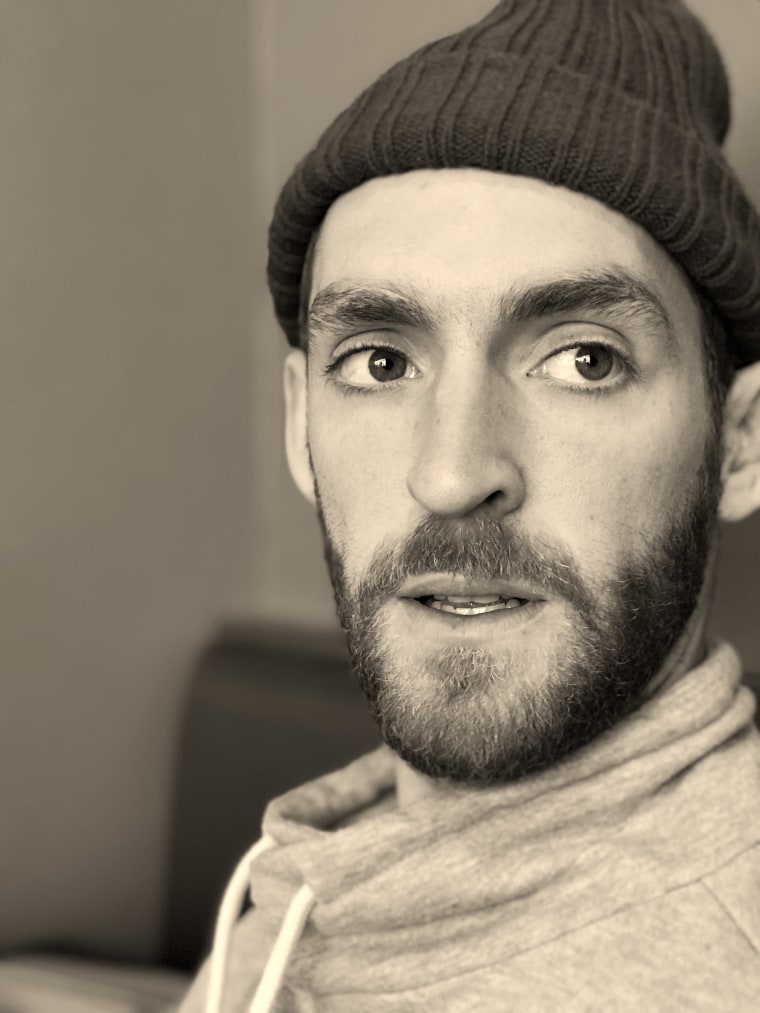Saying “yes” to everything is simply a “no” for Tyler Kleeberger, founder of the mindfulness blog Becoming Human.
“We have a limited amount of time, a limited amount of energy,” Kleeberger tells NBC News BETTER. “We have to then decide which things we are going to commit to, and understand that there will be certain things that we won’t be able to commit to as a result.”
Many of us are raised with the belief that we must accomplish many things to be successful, he says, which has created a culture where we feel pressure to do everything — often to our own detriment.
“[We] have to try and go as hard as we can all of the time so that we can get all of these different things done,” he says.
But consider this, he says: “What if you started from the place where you’re not going to get all of those things done? Would that change how you approach the things that you can get done?”
Here’s how to say “yes” to the right things and “no” to everything else, according to Kleeberger.
Stop juggling
When you’re busy, you’re juggling multiple things at once, explains Kleeberger — throwing family, work and hobbies from one hand to the next.

“In that process, you never actually get to invest yourself into the thing you’re holding, because you don’t hold it for long enough,” he says. You’re not saying 'yes' to any of those things, he explains, you’re just saying 'no' to all of them.
Kleeberger, 29, balances working full time as executive director of The FarmHouse (a church and nonprofit that focuses on improving community health in Metamora, Ohio), being a father to two young children, and coaching high school football.
“I’m a father, and I’m a provider, and those things I can hold,” he says, “and so I want to focus on being a good parent, I want to focus on being a good father, a good lover to my spouse, and I want to focus on being a good provider at the job that I do.”
If he tried to add more, he says, he would end up sacrificing one of those cherished things.
Use your standard to decide when to say "yes"
The easiest way to know whether to say “yes” to something is to know your standard, says Kleeberger — something that is personally important to you, whether it’s health, love, success or something else.
He compares it to the “two-thirds” rule, a rule generally used by business owners to decide what they’re going to prioritize and what they are going to sacrifice to be successful.
For example, if a high-end restaurant owner wants to prioritize the quality of her food, she understands she needs to sacrifice time and price (the food will be made more slowly and will cost more money) to ensure customers get a high quality product, according to Kleeberger.
Kleeberger says individuals can use the two-thirds rule, too.
First, he says you have to figure out what your standard is — what do you prioritize in life above all else? Kleeberger says the standard he prioritizes is health — not simply being physically healthy, he explains, but also maintaining his psychological health through relationship and community building.
When he decided to say “yes” to becoming a football coach at a high school in Metamora, where he lives, it was with that standard in mind, he says.
“I do it because of the connection it gives me to the community and to young people in the community,” he explains.
He says that the rule also comes into play when it comes to his profession and where he lives. "Because I want to write and do community work, I had to say no to other professions. I considered the restaurant world but had to let go of that dream (though it may one day be able to become a yes). There have been business opportunities that I’ve had to turn down," he says. "Another example is that I have said yes to the rural community in which I live and have had to say 'no' to job offers that would allow me to continue to do the same work but would require me to move. I could long distance commute, but I’ve said yes to a flexible schedule and family investment. Because of those yes categories, the job offers are an easy no."
When to say “no”
When you know what you’re only going to say “yes” to, Kleeberger says, saying “no” is easy.
Once you have your standards for your life of what you’re going to pursue, it becomes kind of blatantly obvious what you can’t do anymore.
“Once you have your standards for your life of what you’re going to pursue, it becomes kind of blatantly obvious what you can’t do anymore,” he says. "I often say no to meetings if they don’t fit my immediate goal/plan/action categories. I say no to a lot of suggestions from people on what I should read or what event I should do. I decline invitations to events if they don’t fit my current categories. There are many daily decisions where I go, 'I have this much time and this much energy. Therefore, these are the things that fit and anything else is out.'"
But it’s okay if the things you say “yes” to now become things you say “no” to later, he says.
“At some point, that could change, and if I’m sensing that I’m no longer able to bring that value to the community, or I find something else that is allowing me to do that, at that point I can go, ‘I need to say ‘no’ to that,’” he says.
Have a plan
Once you say “yes” to something, Kleeberger advises, you need to take action.
“If you’re not being intentional about these things, you’re going to drift towards whatever is easiest,” he says. “And there’s a good chance that those will not coincide, and will directly conflict, with what you said you were trying to pursue.”
Your saying "no" action plan
Stop juggling too many commitments: When you juggle too many things at once, you never really focus on anything.
Identify your standard and live by it: What do you value most? Health, family, creativity, success? Once you know your value and stick to it, knowing what to say “yes” to — and what you must sacrifice — is obvious.
Know when to say “no”: Using your standards as a guide, if it’s not a definitive “yes,” then it’s a “no.”
Have a plan of attack: Don’t simply say “yes” to something — take action and be intentional about how you will carry it out.
MORE WORK AND PRODUCTIVITY HACKS
- Use micro habits to boost productivity and reach your goals
- How to use one daily ritual to tackle a big goal
- How to make failure a key to your success
- The productivity hack that allowed me to accomplish more in less time
- How to procrastinate more productively, according to a psychologist
Want more tips like these? NBC News BETTER is obsessed with finding easier, healthier and smarter ways to live. Sign up for our newsletter and follow us on Facebook, Twitter and Instagram.

